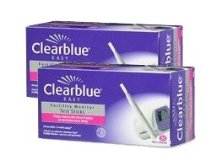New evidence suggests that mothers who take 3 key nutrients before and during pregnancy may give birth to smarter, healthier babies! Here’s what you need to know.
By Colette Bouchez
Want to give birth to a smarter baby? Make sure to get an adequate supply of the mineral iron and the nutrient folic acid (vitamin B9) before and during your pregnancy!
That’s the exciting result from a new study released today by researchers in Nepal India. Here doctors found that women who took prenatal vitamins containing both iron and folic acid before and during pregnancy gave birth to children with more highly developed cognitive skills, as well as better developed motor skills than the babies born to moms who skipped these important nutrients.
The children whose mother’s took the vitamins also showed a higher, more developed level of reasoning skills and displayed an enhanced sense of behavioral skills including inhibitory controls, when compared to babies whose mother’s did not have the benefit of these nutritional supplements.
While most women are aware of the importance of taking prenatal vitamins while they are pregnant, fertility experts like Dr. Niels Lauersen say too many still don’t realize the importance of also taking these vitamins before they even try to conceive.
“Many women are pregnant 6, 8 or even 10 weeks before they know it- a time when your baby is going through critical stages of development that could greatly benefit from many nutrients, but particularly folic acid,” says Lauersen, co- author of the new book “ Green Fertility: Nature’s Secrets for Making Babies”
So, says Lauersen, taking a daily prenatal or high potency vitamin beginning two months prior to when you want to conceive will help ensure that your baby’s nutritional needs are met from the moment of conception.
Iron supplements, say Lauersen are most critical towards the end of the pregnancy, as the baby’s blood supply begins to expand putting extra stress on the mother’s supply.
The WHO (World Health Organization) estimates that up to one-half of all pregnant women in developing countries are anemic at the time during pregnancy due to a lack of iron.
Vitamin D Helps Baby Breathe Better!
If you want to breathe easy about your baby’s ability to breathe, make sure you get an adequate supply of Vitamin D during your pregnancy. How can this help?
In a new study just published today in the journal Pediatrics, a group of Harvard researchers found that babies born with low levels of vitamin D in their bloodstream, were much more likely to develop wheezing problems, and were more susceptible to infant respiratory infections, including Bronchiolitis, a viral infection of the lungs, that is the leading cause of hospitalization among infants. In the US.
Conversely, babies born with higher levels of Vitamin D appeared to gain protection against these common health problems.
The level of vitamin D in a baby’s bloodstream is a direct reflection of the amount of Vitamin D in the mother’s bloodstream during gestation. And in a previous study these same researchers proved that the risk of infection was higher amongst babies born to mothers who did not have adequate levels of vitamin D during pregnancy.
In the new study the doctors directly examined the cord blood samples taken from 922 children in New Zealand, looking for their specific levels of vitamin D. The researchers then followed the children for a period of five years, periodically assessing their health via questionnaires filled out by their mothers.
The result: Researchers found the lower the level of vitamin D in each child’s cord blood sample, the higher their risk of developing wheezing problems during the first five years of life. Those with exceptionally low levels of D were twice as likely to develop respiratory infections including colds, coughs and ear infections during the first three critical months of life. Doctors reported that the D-deficient babies also experienced a greater risk of infections and illness overall, when compared to babies with higher levels of D in their cord blood.
The one surprising finding in the study was that the lack of vitamin D and the increase in wheezing did not appear to correlate with a higher risk of asthma.
That said, according to the book Green Fertility: Nature’s Secrets for Making Babies, even if a lack of vitamin D does not increase your baby’s risk of asthma, making certain your levels remain high during pregnancy could ultimately help reduce the severity of any asthma that does occur, simply by reducing the risk of respiratory conditions known to exacerbate the disease.
The body makes Vitamin D naturally via exposure to the sun - you'll need about 20 minutes a day without sunblock to reach minimum levels. You will likely need vitamin D supplements to reach the maximum amount necessary to improve your baby's health.
For more information on the key vitamins, minerals and other micro-nutrients that can help you get pregnant as well as increase your baby’s health once you do conceive, visit Green Fertility.com or pick up a copy of Green Fertility: Nature’s Secrets for Making Babies.
Copyright by Colette Bouchez 2010 - All Rights Reserved. In addition to US Copyright, the text of this FERTILITY BLOG is licensed under a Creative Commons Attribution 3.0 License. All Formatting and style elements of this page are not available under this license and Colette Bouchez retains all rights in those elements. The creators and contributors to this blog may or may not benefit from the mention of any products or services featured in these posts.















